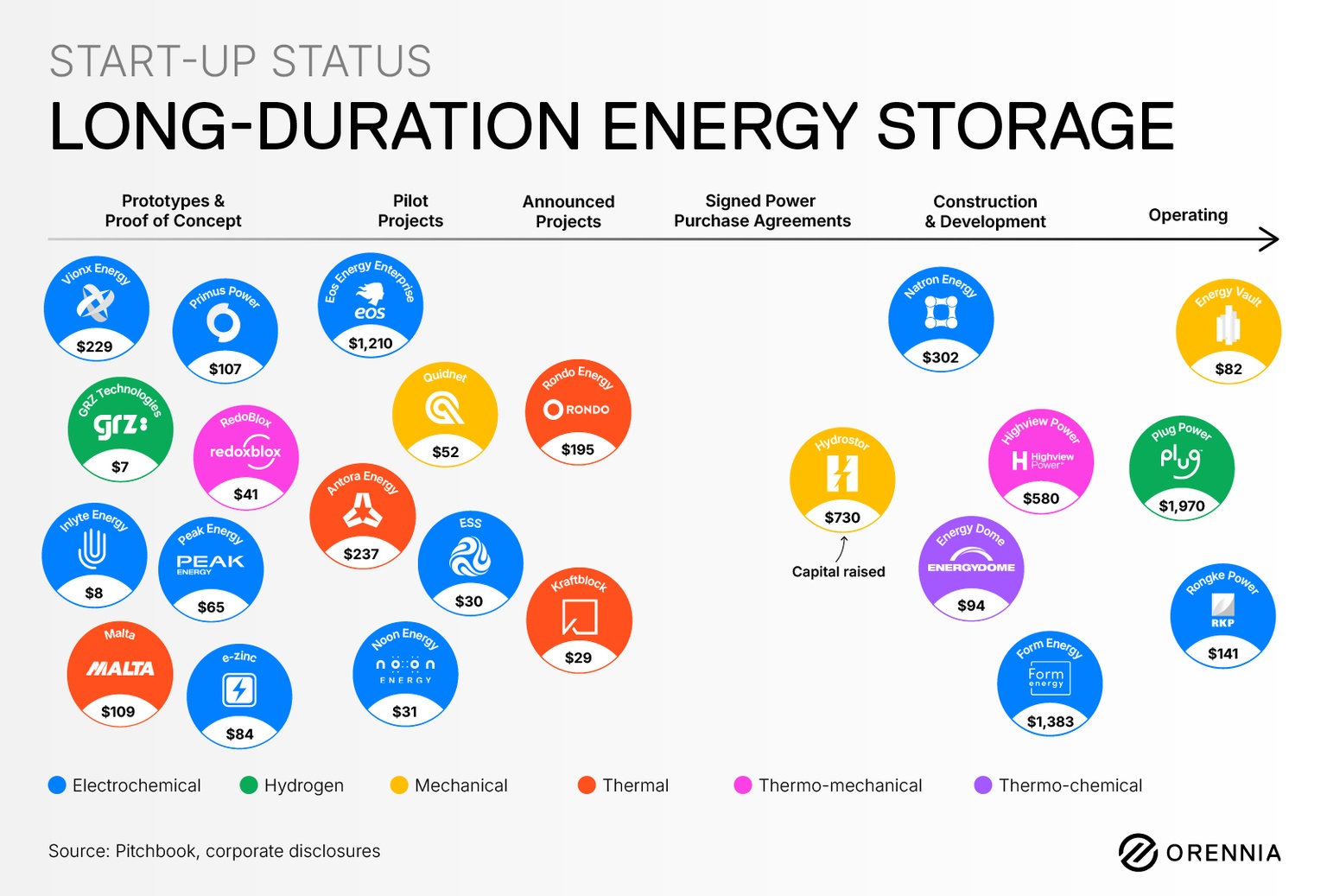
Aaron Foyer
Director, Research

Aaron Foyer
Director, Research

While lithium-ion batteries have been able to address the need for multi-hour energy storage needs, there is still a need to develop technologies that can affordably store energy for days to weeks.
The need: The Department of Energy estimates that 4-hour lithium-ion batteries can support grids with up to 50% to 60% of variable renewable energy, but that long-duration energy storage (LDES) with 10+ hours of storage are needed much above that.
There are various families of storage technologies being developed:
Funding is needed to support their development. To date, Eos Energy, Hydrostor, Form Energy and Plug Power have led the charge in capital raised.
+Bonus article: The Emerging Long-Duration Storage Technologies
+Bonus article: Form Energy and the 100-hr Battery
Data-driven insights delivered to your inbox.